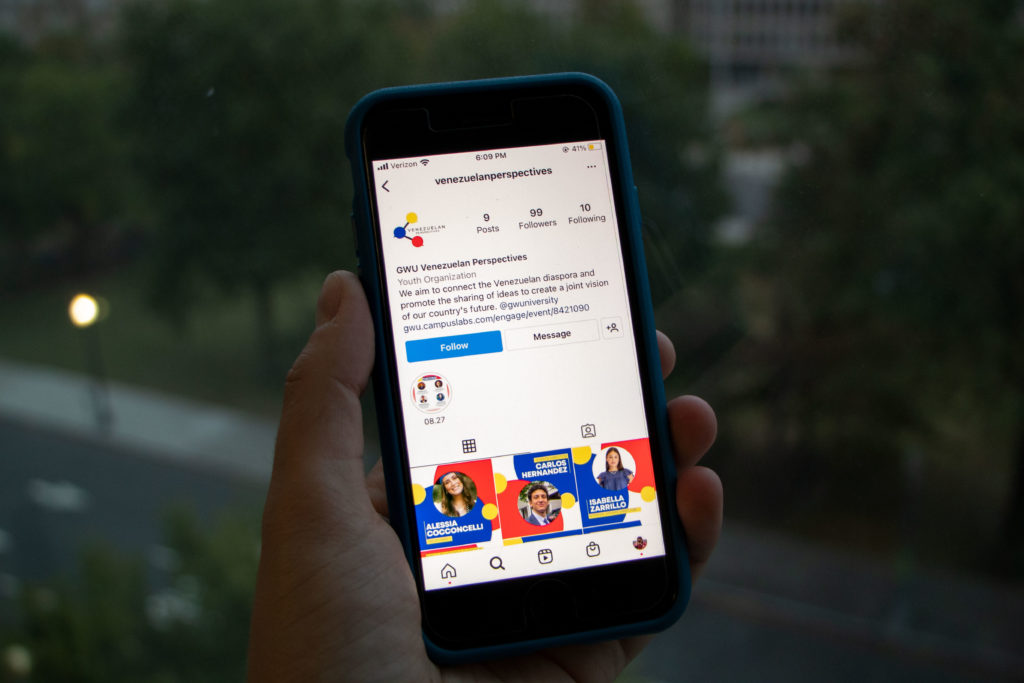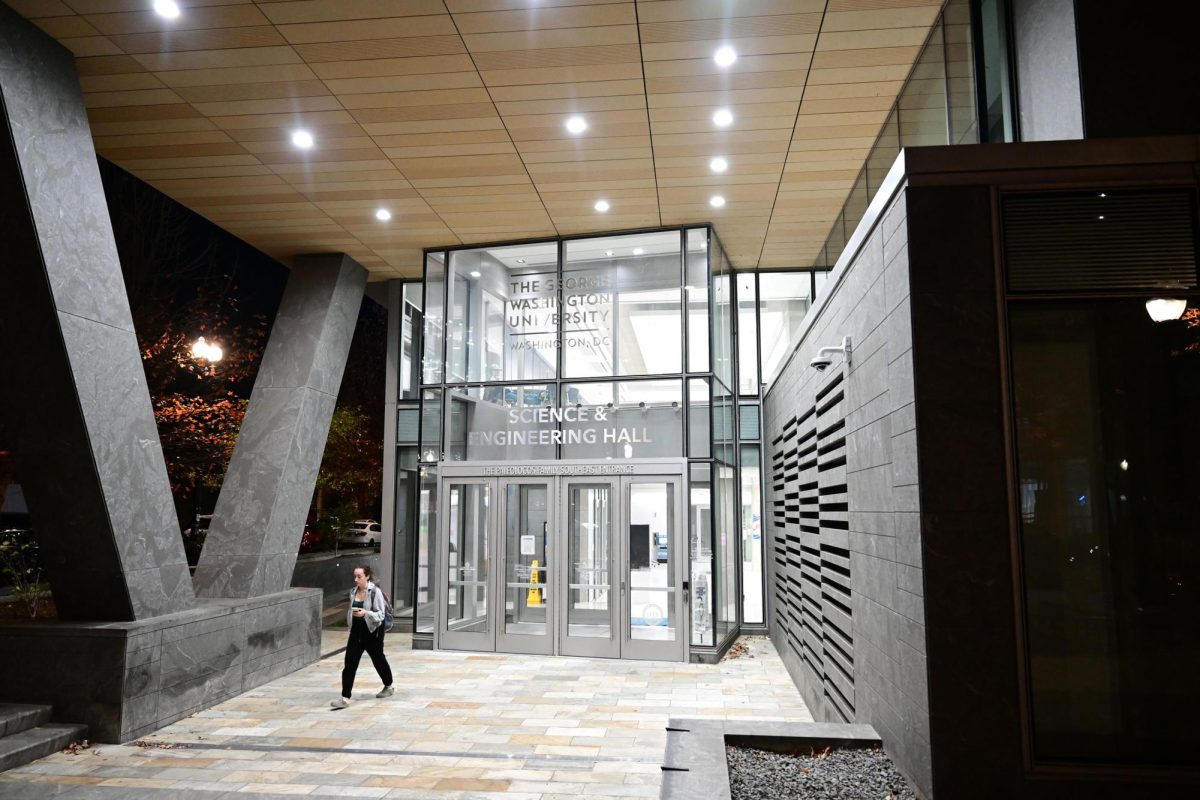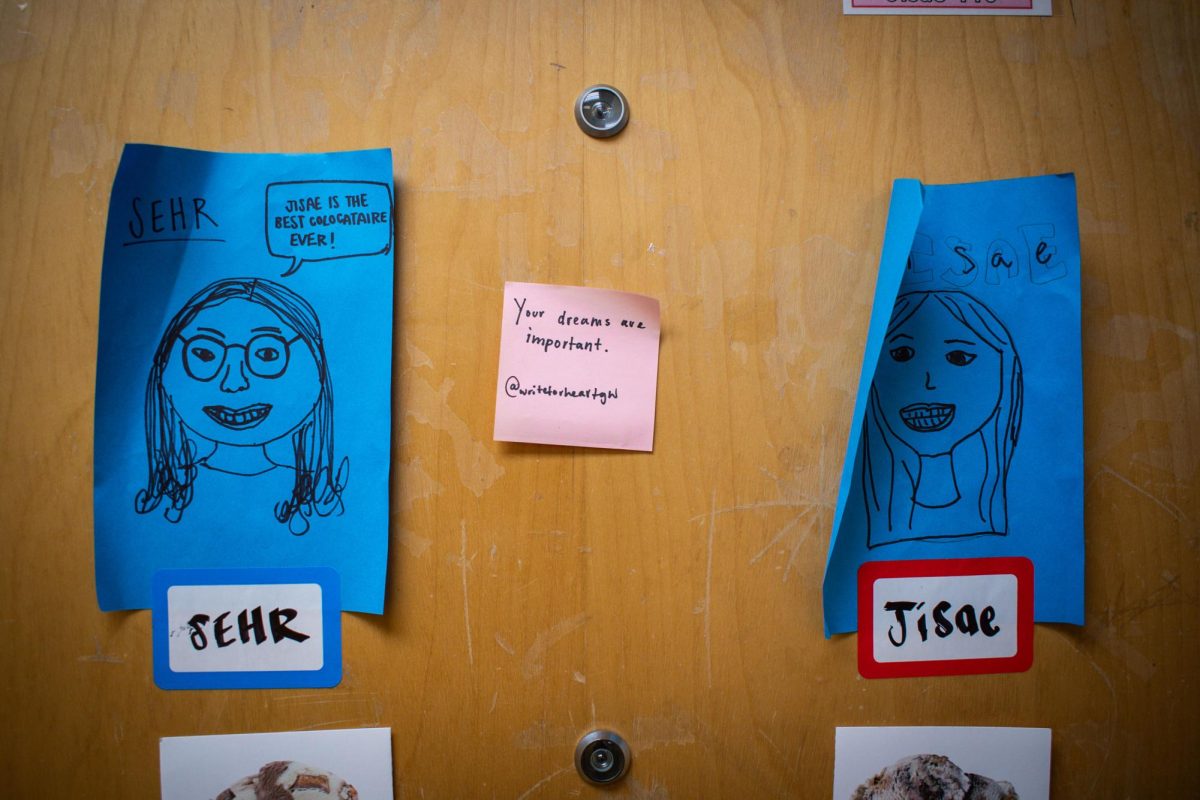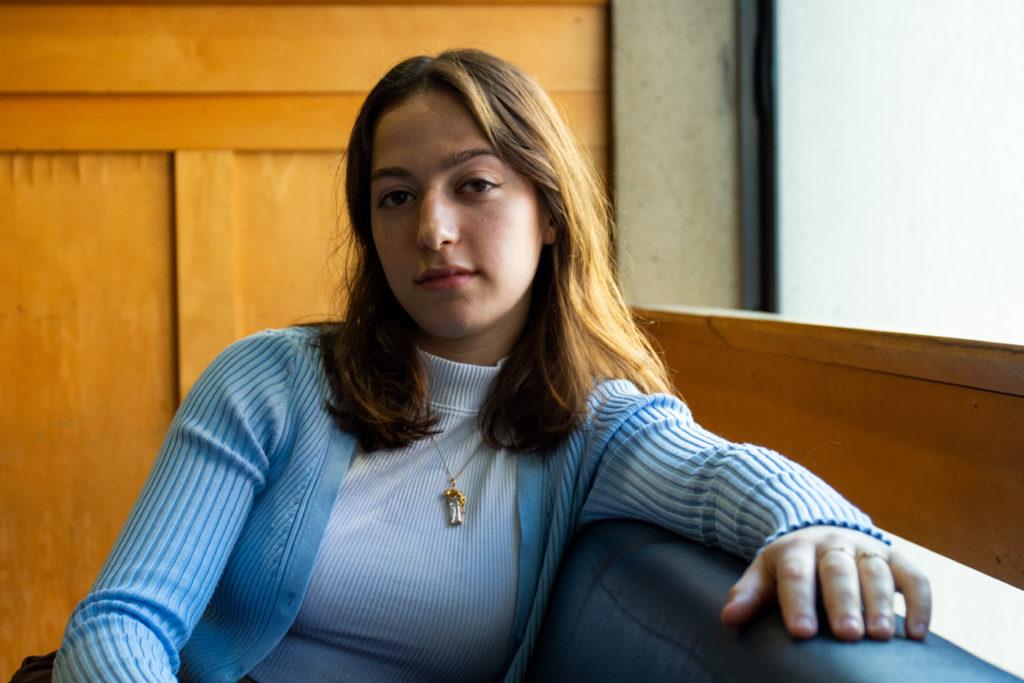Updated: Monday, Oct. 17 at 4:32 p.m.
A student organization that will fundraise for Venezuelan migrants in D.C. and lead discussions on issues impacting Venezuela relaunched its chapter on campus this semester after a two-year hiatus.
Venezuelan Perspectives will advocate and collect emergency aid for migrants attempting to flee Venezuela’s political and economic crises, including those sent in buses to Union Station from the Texas border during this academic year. Student leaders said members, many of whom are first-generation immigrants, will pull from personal experiences with violence and poverty in Venezuela to inspire their activism and support migrants recovering from the hyperinflation and resource shortages in the country.
A 2022 United Nations Refugee Agency report estimated more than seven million Venezuelan migrants are seeking asylum worldwide, and about half of Venezuela’s citizens are currently living below the poverty line. Venezuelan migrants continue to arrive in D.C.’s Union Station this fall after Gov. Greg Abbott, R-TX, started transporting asylum-seekers in buses to the District from Texas in late August to protest President Joe Biden’s move to prohibit the expulsion of migrants from the U.S.
Senior Francisco Lara – the president of Venezuelan Perspectives, which was founded in 2016 and was reapproved as a student organization this fall – said he lived in Venezuela until he was 15 before moving to the U.S. with his parents during the peak of Venezuela’s economic crisis when basic necessities were “scarce” and violence was “rampant.” Lara, a native of Caracas, Venezuela, said before leaving his native country, the crisis in Venezuela caused him to miss three months of classes due to road closures following frequent, nonviolent mass protests.
“It was out of my control, and that really frustrated me,” Lara said. “The reason why I decided to study what I study and come to D.C. was because of that. That’s what’s motivating me to do what I do.”
Venezuela began experiencing an economic collapse in 2014 when the country’s gross domestic product dropped by 3.9 percent, causing 9.3 million Venezuelans to descend into food insecurity. The Venezuelan government also faced turbulence in 2019 when President Nicolás Maduro was accused of rigging his reelection and confronted a military uprising led by opposing political leader Juan Guaidó in an attempt to oust Maduro from his position.
Lara said executive board members provided food, clothing and other assistance to migrants who arrived at Union Station over the summer. He said he wants to lead other students, not just members of Venezuelan Perspectives, to attend volunteer events supporting asylum-seekers at Union Station during the upcoming school year.
He said members of the organization plan to meet migrants at Union Station in November to provide food and medical supplies through a volunteer event hosted by the Embassy of Venezuela. Lara said he and other members of Venezuelan Perspectives feel an obligation to assist refugees from their native country now that they are in the United States and able to help.
“We are Venezuelans too, and we just got lucky,” Lara said.
Senior Natalie Chevrel, the vice president of Venezuelan Perspectives, said the organization aims to unite Venezuelan students on a campus where connecting with other Venezuelan students can be challenging because few attend GW. She said the student organization will work to help Venezuelan international students at GW find jobs in D.C. and navigate the American college system this semester.
The University reported 23 international students enrolled at GW from Venezuela in 2021, less than one percent of the total population of international students enrolled at the University.
“We also obviously wanted to help our country in some way,” Chevrel said. “Just because everyone who leaves Venezuela is always thinking of ways to try to help from afar because we love our country, and it’s just really horrible – everything that’s happening.”
Chevrel, a native of Caracas, Venezuela, said her “personal” connection to the country after living there for 10 years has fueled her motivation to advocate for aid from the United States. She said the organization’s efforts to help Venezuelans prompts her to appreciate how fortunate she is to be in the United States and able to help others.
“There’s always something we can do,” Chevrel said. “No matter how bad the crisis is, there’s always something you can do, even from abroad.”
The federal government sent nearly $376 million in humanitarian aid to Venezuela to fund food, emergency shelter, access to health care and sanitation supplies last month. The assistance includes more than $181 million from the U.S. State Department’s Bureau of Population, Refugees and Migration and more than $194 million through the U.S. Agency for International Development.
Chevrel said the organization plans to host student events this semester, including a screening of a documentary about the current state of the Amazon Rainforest and a speaker panel of Venezuelan immigrants who will discuss their adjustment to life in the United States. She said this programming will aim to spread awareness to the GW community about the return of the organization and recruit new members.
Chevrel said the organization will also host smaller events, like biweekly general body meetings and group tutorials on how to cook hallacas, a traditional Venezuelan Christmas dish, during the end of the semester and start of the spring semester. She said these more intimate programs will promote community bonding and member retention to ensure the organization’s legacy lives on and allows students to continue advocating for Venezuelan aid.
“We are the Venezuelan people, and so we want to help in any way we can,” Chevrel said.
Junior Elisa Taylhardat, Venezuelan Perspectives’ head of public relations and outreach, said her family left Venezuela for the United States due to violence in the country, and plans for her family to return have been delayed because of the continued crises. She said her home in Venezuela became even more “unstable” and “dangerous” during her family’s absence, causing them to remain in the United States.
Taylhardat said she still feels connected to issues impacting Venezuela, and having a dedicated space on campus for students to connect on Venezuelan topics while celebrating their culture is essential.
“It’s very important for us to have those spaces to be able to connect with other mentors because we belong to this country where we don’t really have the places to speak about things that are super important for us,” Taylhardat said.
This post was updated to correct the following:
Due to an editing error, The Hatchet incorrectly reported that Chevrel said it’s difficult to connect with other Venezuelan students on a predominantly white campus. She said it was difficult to connect to other Venezuelan students because few attend GW. We regret this error.








